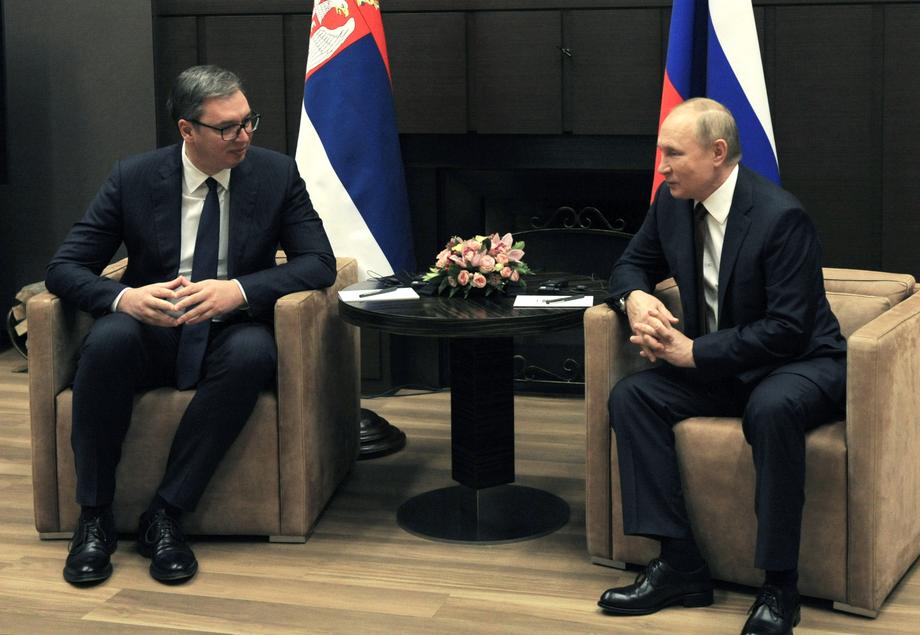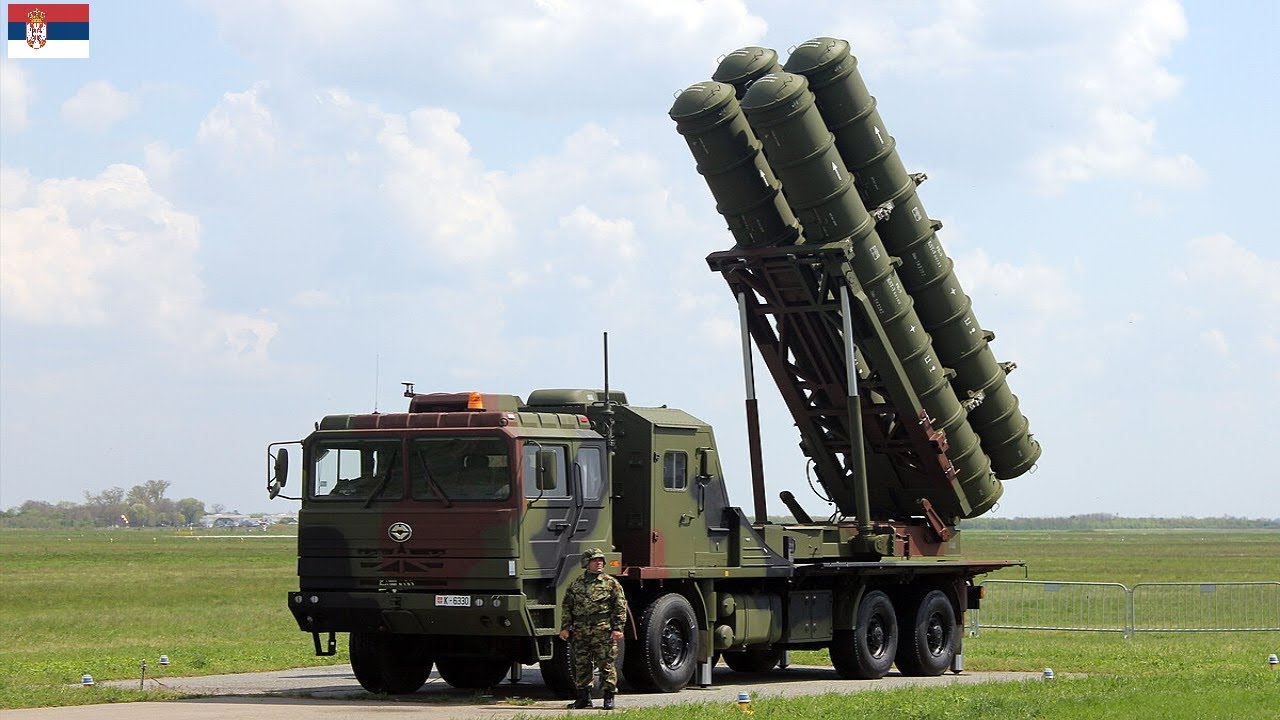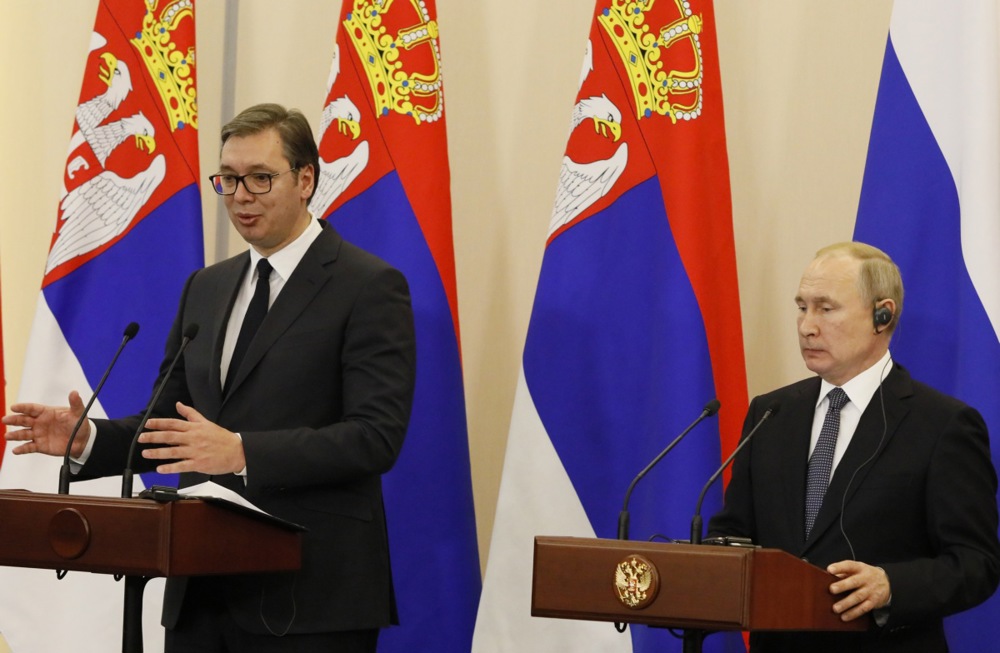
Serbia
Introduction
Serbia stops some arms deals with Russia, causing shock. Under Western pressure, Serbia halted military agreements with Russia and postponed others for an indefinite time. This decision indicates a big change in Serbia’s military plans, as disclosed by General Milan Mojsilovic, head of Serbia’s General Staff, in a January 8 interview with Večernje Novosti.
Previously, Serbia valued its strong military ties with Moscow. However, increasing Western sanctions against Russia and changes in the global situation left Serbia with fewer options. Even with Russia facing global isolation, Serbia had kept open its weapons supply lines through licensed production in other countries, which allowed access to Russian arms.
This strategy helped Serbia maintain its Russian-made weapons, relying on local production for parts and upkeep. General Mojsilovic stated that the Serbian army can now support and maintain much of its Russian equipment and keep it combat-ready. Yet, he also noted that new deliveries of Russian arms have become “almost impossible.”.

As a result, Serbia cancelled some military deals with Russia and postponed others, hoping that international relations would normalise in the future, which might allow the reinstatement of these agreements.
The shift by the Serbian Ministry of Defence reflects not just a diplomatic change but also a significant operational adjustment. Serbia has begun looking to new suppliers, particularly China, to replace Russian military gear.
Chinese-made FK-3 air defence system
As a clear indication of this change, Serbia announced it would acquire the Chinese-made FK-3 air defence system in place of the Russian S-400. This move reflects Serbia’s changing defence needs and a broader reorganisation of its military priorities. In a more challenging geopolitical climate, the country aims to broaden its list of defence suppliers.
FK-3 is a next-generation air defence system that enhances Serbia’s military capabilities. The system includes mobile command and logistics vehicles, missile launchers, and advanced radar, providing Serbia with a strong, multilayered defence against various aerial threats.
The FK-3 can handle swift cruise missiles and enemy aircraft, giving Serbia a significant advantage in air defence. One key feature of the FK-3 system is how well it withstands electronic warfare, which is a major issue for modern air defences.
With advanced countermeasures to stop jamming, the FK-3 ensures that Serbia can operate effectively even in electronic contest situations. Additionally, it can tackle incoming missiles targeted at radar stations, making it a powerful tool against precision-guided weapons aimed at critical defence infrastructure.
Strategically, the FK-3 is more than just an equipment upgrade. Serbia’s commitment to enhancing its defence capabilities is evident to both enemies and friends.
Deploying this advanced system boosts the country’s deterrence abilities, better preparing it to face external dangers, whether close or distant. As alliances shift, Serbia’s deployment of the FK-3 sends a strong signal about its changing defence strategy. The message is clear: Serbia is no longer relying solely on old military ties.
Russian International Affairs Council
Instead, it’s expanding its defence options to prepare for future threats. Meanwhile, Serbia’s economic ties with Russia are also undergoing significant changes. A report by the Russian International Affairs Council shows Russia’s economic power in the Balkans is fading. Western sanctions have hit key sectors like energy, arms, and metallurgy, weakening Russia’s influence.
Although the EU is currently Serbia’s top economic partner, Russia has historically played an important role in its economy. Trade between Russia and Serbia reached a peak of $4.28 billion in 2022. However, by 2023, sanctions had begun slowing Serbian imports from Russia in a big way. Rising energy prices and trade limits have pushed Serbia to look for new suppliers.
This shift shows how exposed Russia’s economic role in the region has become. Serbia is also trying to keep energy relations steady despite these pressures. Deputy Prime Minister Aleksandar Vulin said Serbia wants to import more Russian gas. He also confirmed that talks with Gazprom are ongoing to renew the current gas deal.
Serbia’s energy security
The aim is to secure gas volumes comparable to the current deal, which is vital for Serbia’s energy security. However, recent events present a distinct picture. In April 2024, Serbia saw a sharp drop in its gas imports from Russia, highlighting the shifting situation. The Serbian government has not yet outlined a plan to handle this energy shortfall, raising concerns about the viability of its current energy approach.

In an unexpected turn, reports have emerged that Serbia is providing ammunition to Ukraine through intermediary countries, with a value of around €800 million. Although Serbia has long maintained neutrality between East and West, this move marks a clear shift from that stance.
By supplying ammunition to Ukraine, Serbia is balancing its historic ties with Russia and its need to sustain positive relations with the West. This decision has stirred significant debate, with some accusing Serbia of compromising its traditional neutral stance in the ongoing conflict. This situation complicates Serbia’s foreign policy, which has grown more unpredictable amid the continuing war in Ukraine.
Conclusion
Serbia’s military and diplomatic moves aim to protect national interests but also show shifting Balkan geopolitics. With Western sanctions growing and Russia’s grip weakening, Serbia’s future alliances remain unclear.
Belgrade’s next steps will decide whether it can stay neutral or must pick a clear side. This choice comes as global tensions rise and the world becomes more divided. Serbia now faces a tough test that could shape the region’s future for years. It’s working hard to keep its strategic independence in a fast-changing world.
References
- “Serbia Cancels Arms Deals with Russia Under Western Pressure”
URL: https://www.reuters.com/article/serbia-russia-arms - “Serbia Acquires Chinese FK-3 Air Defence System Amid Shifting Alliances”
URL: https://www.defensenews.com/global/europe/2024/01/09/serbia-acquires-fk3 - “Serbia Supplying Ammunition to Ukraine Through Intermediaries”
URL: https://www.euractiv.com/section/europe-s-east/news/serbia-ukraine-ammunition-supply








